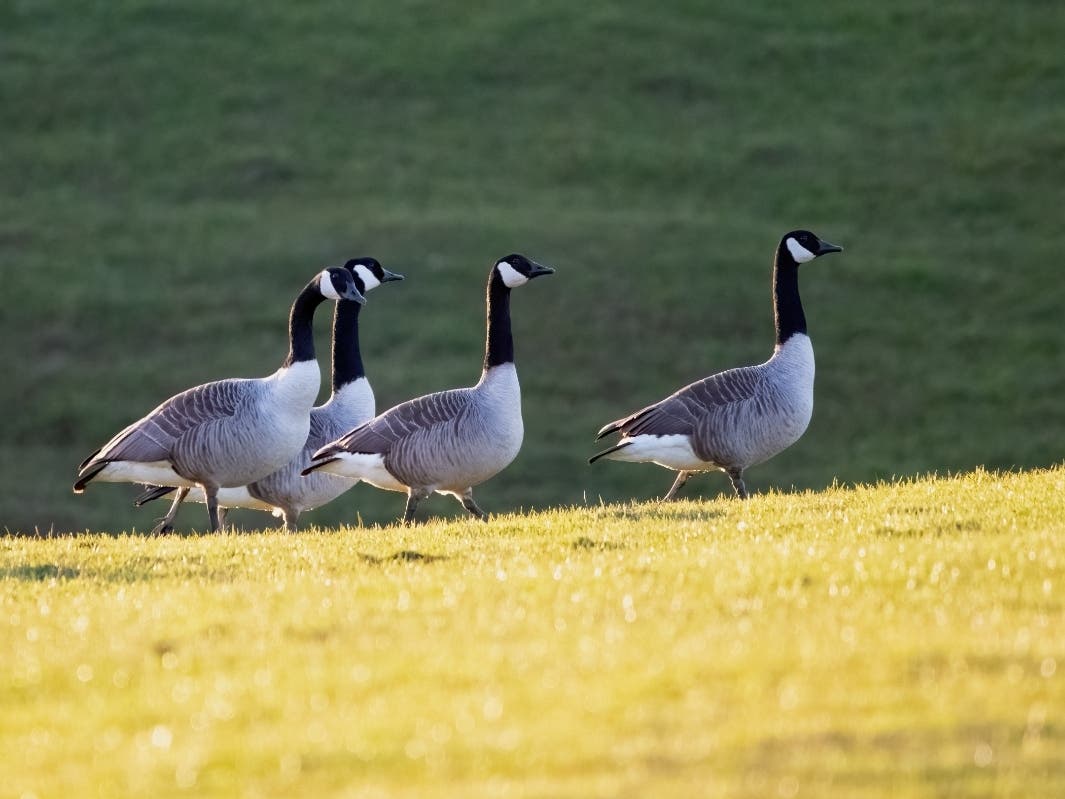
ALLENTOWN, NJ — Parks in Allentown have been closed following the discovery of deceased geese, marking one of the first significant incidents of dead birds reported in Monmouth County due to a recent bird flu outbreak affecting the state.
As of Monday morning, Dr. Farmer’s Park and Pete Sensi Park remain closed, as confirmed by Borough Administrator Laurie Roth. Additionally, the segment of Heritage Park near the Old Mill parking lot along the waterfront is also inaccessible; however, all other sections of Heritage Park are open to the public.
The borough has not disclosed the exact number of dead geese found. In a statement issued last Friday, Mayor Thomas Fritts addressed the community’s concerns.
“We understand your worries regarding the recent sighting of deceased birds,” Fritts mentioned. “Rest assured, we are treating this situation with utmost seriousness and are actively working to resolve it.”
Roth stated that the borough has notified several governmental agencies about the bird fatalities, including the Monmouth County Department of Public Works, the Monmouth County Health Department, the NJ Department of Environmental Protection, the Division of Fish & Wildlife, and the U.S. Department of Agriculture (USDA).
Although the USDA has informed the borough that they are conducting sampling of Canada geese deaths statewide and attributing the high mortality rates to bird flu, Roth indicated that it remains unclear whether the USDA has conducted sampling in their specific area.
According to NJ DEP Spokesman Larry Hajna, reports of various dead wild birds were submitted last week to the USDA’s Animal Plant & Health Inspection Service and the DEP’s Fish & Wildlife division, which are currently collaborating on the safe retrieval and disposal of these carcasses.
While testing may be performed on these birds for bird flu, Hajna noted that it is too early to determine if this was the actual cause of death.
“We recognize that this issue extends beyond our borough,” Fritts remarked. “Our governing body, borough administrator, and I are actively communicating our concerns to the Monmouth County Commissioners, who are addressing similar circumstances in other municipalities. Ultimately, the State of New Jersey needs to establish clear and consistent guidelines for managing this bird flu outbreak.”
The current strain responsible for the bird flu outbreak, known as H5N1 or avian influenza, has been attributed to the localized deaths of numerous wild birds, mainly snow geese and Canada geese, in various regions of New Jersey since late December, as reported by the state DEP, which monitors the spread of the disease in wild avian populations.
The last confirmed H5N1-related wild bird deaths in New Jersey were reported in April 2024, according to the DEP.
More than 140 sick or deceased snow geese and Canada geese have been reported from over 30 locations throughout the state, with some reports available here.
Officials have noted clusters of five or more dead birds in Atlantic, Cape May, Cumberland, Salem, and Warren counties. Out of these wild birds, 11 have tested positive for the virus, though the DEP awaits federal confirmation on these cases.
While there have been reported instances of H5N1 in animals, no cases of human infection have been documented in New Jersey, according to the DEP.
Furthermore, the US Centers for Disease Control and Prevention has categorized the H5N1 outbreak as primarily an animal health concern, indicating a low risk to public health, as per Hajna’s comments.
To ensure public safety, borough officials are advising residents to refrain from interacting with the geese and not to attempt to handle or dispose of any deceased birds.
If residents encounter any deceased geese, they are encouraged to report their findings directly to Borough Hall at 609-259-3151.
The DEP’s Fish & Wildlife division offers the following safety recommendations to the public:
- Keep a safe distance from wild birds and avoid direct contact
- Do not approach wild or domestic birds that appear sick or have died
- Consume only pasteurized milk and dairy products, and avoid giving pets raw milk or dairy
- Ensure poultry, eggs, and beef are thoroughly cooked before eating
- Consult CDC guidelines for additional precautions and consider wearing personal protective equipment if in contact with potentially infected birds or livestock
Occurrences of avian influenza can be monitored here. For further information on H5N1, please click here.









